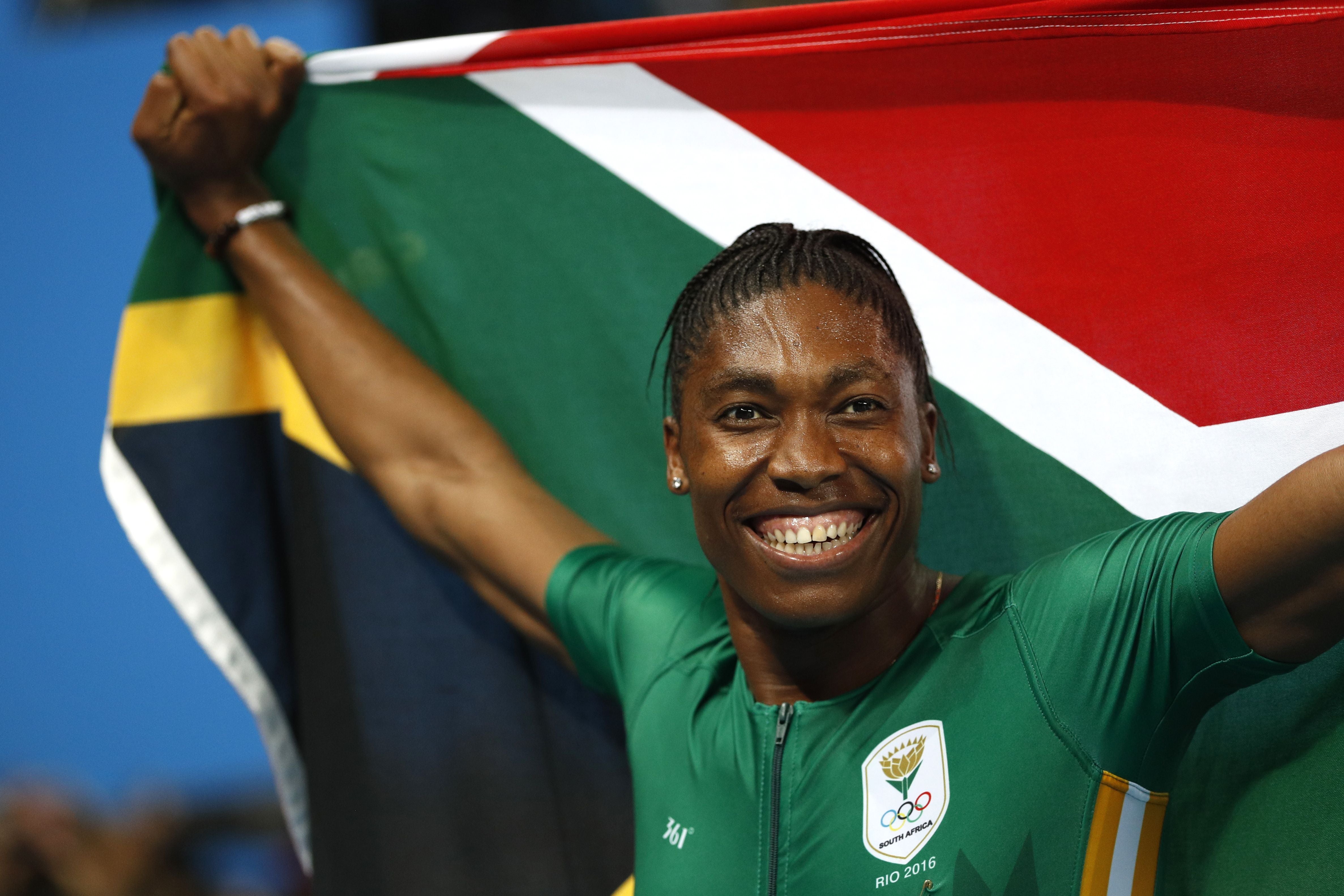
By the time South African runner Caster Semenya crossed the finish line Saturday to take the gold in the 800m Olympic Final, hundreds of articles and thinkpieces had already been written about what would happen if she did win.
And only hours after she stood on the podium in Rio and sang along to the South African national anthem, congratulatory articles quickly transitioned to speculation on the future of her running career.
18 Times Black Girl Magic Won at the 2016 Rio Olympics
Semenya ran a time of 1:55.28 on Saturday — a personal best and a new South African record. It was also her first Olympic gold medal. But as we have seen time and time throughout her career, Semenya has never been given room to revel in her victories.
She has had to contend with years of scrutiny about her gender since winning the 2009 world championships at the age of 19. Her dominating performance –and appearance— raised enough speculation for her to be flagged for sex-verification testing. The results, which were to remain confidential, revealed that she is hyperandrogenous, a condition where her body produces an abnormally high amount of testosterone. But when the information was leaked, Semenya’s body underwent intense and insensitive scrutiny under the eyes of the the International Association of Athletic Federation (IAAF), the media and the court of public opinion on whether she was, to put it crudely, “woman enough” to compete.
“I have been subjected to unwarranted and invasive scrutiny of the most intimate and private details of my being,” Semenya said in 2010 in one of the very few public statements she has made to the public in the last seven years. It has been rumored that she has had to take testosterone-suppression drugs just to compete.
WANT MORE FROM ESSENCE? Subscribe to our daily newsletter for the latest in hair, beauty, style and celebrity news
The tide turned Iast year when a higher court ruled that using natural testosterone levels as the measure for sex verification was unjustified, and that the sports bodies had two years to prove hyperandrogenism provided female athletes with a competitive advantage. That decision, after years of testing and arbitration decisions that have played Semenya’s career like ping-pong, brought another round of questioning of her abilities.
Indeed, barely two hours before her race —in extremely bad taste — IAAF president, Sebastian Coe, said again that the governing body will soon try to overturn that decision.
Semenya has, understandably, remained mum for years. While most athletes would head to the press box after their wins during the Olympics, she breezed straight by. But she was forced to confront Coe and her critics in the required post-race press conference: “It’s all about loving one another. It is not about discriminating people and looking at people in terms of how the look, how they speak and how they have run. It’s not about being masculine. It’s about sports…You just want to do better.”
That answer, and win, gave Semenya a chance to regain some form of ownership of her narrative — one that has been chopped and screwed to so many levels that we often forget that she is a person who has a voice. The next few years will likely be even harder for the Olympic Champion, but in this moment in front of the world and her supportive South Africa, her win matters because it belongs to solely her — and no one can take it away from her.